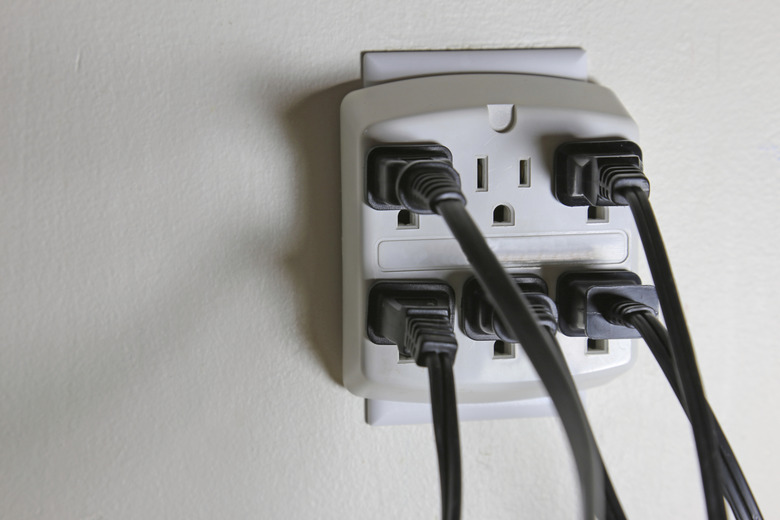Reasons Electrical Outlets Do Not Work
Electrical systems are complicated home systems with a number of working parts. Sometimes these parts break or malfunction, causing the electricity to part or all of a home to stop flowing. Electrical outlets can stop working for a number of reasons. These involve some aspect of the electrical circuit, even if only the outlet itself.
Overloaded Circuit Issues
Overloaded Circuit Issues
Electrical flow through a circuit can be interrupted due to a blown fuse, a malfunctioning circuit breaker, or a fully functioning tripped breaker. Both of these are in place to prevent overheating of wiring or electrical fires. An overload occurs when too much current is traveling through a wire, which causes it to get hot. A fuse is designed to melt and break when there is an overload, thus causing a circuit to fail, which can lead to a power outlet not working. A breaker is also designed to respond to an overload by shutting off the electricity to the circuit involved. A fuse has to be replaced, but a breaker can be reset manually.
Open Circuit Interruptions
Open Circuit Interruptions
An outlet may not be working if there is an opening in the circuit it is attached to. This is a point in the circuit where an electrical current is unable to pass. The most common reason for this to happen is because of a loose wire, which could be the cause of a wall outlet not working. An open circuit can also occur if a wire has deteriorated or there is some kind of break or gap in the wiring.
Short Circuits
Short Circuits
A short is another reason that a breaker will trip, cutting off the flow of electricity to a circuit and causing one or more electrical outlets to stop working. When a wire runs hot, a short can occur when an unintended connection forms with a ground wire or anything else that provides a path to the earth. This will cause some or all of the electricity to run off the circuit, thus tripping a breaker. If the circuit also has a ground-fault interrupting device it will also cut the circuit in the same way as the breaker.
Faulty Regular or GFCI Outlet
Faulty Regular or GFCI Outlet
A poorly installed, defective or corroded electrical outlet may also be a non-functioning one. Luckily, these are cheap and easy to replace. If, after checking to see that a blown fuse or a triggered breaker box is not responsible for an outlet not working, consider the outlet itself. Shut off the circuit to which it is connected, unscrew it and make sure the wires are hooked up correctly. Loose wires or miswiring could be the cause. If not, replacing the outlet, whether a standard or GFCI outlet, should be a solution.
A power outlet not working can come from a variety of issues. Look at the possibilities to narrow down the possibilities, and call an electrician if it's something more complex that you don't feel comfortable handling.
